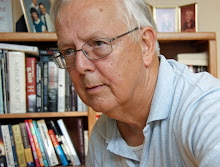The other day I reached 6,000 followers on
Twitter. Why is that worth mentioning? Because of the power of retweeting, Twitter is a highly effective means of reaching readers. That feature allows you the potential of reaching many times more than the number of followers you have. A lot of these followers are going to be ebook owners, and a lot of them are willing to spend a small amount of money to try out an unknown author. For me, $2.99 seems an effective price point.
On Twitter you can find them by searching for hashtags (#) that categorize topics. Some that I've found useful are: #kindle, #writing, #amwriting, #amreading, #mysteries, #humor, #crime, #books, and #ebooks. A search will display recent tweets that have included those hashtags. Then I suggest you follow a number of those people, and retweet some of their messages. Many of those people will follow you back.
Twitter sets follower limits but doesn't publicize them. You just know you've reached a limit when they tell you, but that is not a problem. Send out some tweets and retweets, and soon you'll find you can follow more people. Be patient with trying to grow your follower list. It seems Twitter just doesn't want people to abuse the system or weigh it down.
I'd suggest you use some other tools to complement Twitter. There are many, but I'll tell you what I'm familiar with.
Twellow allows you to search for people by subject matter. What I like about it is that it lists people with your interests in descending order by number of followers. So if you search for mysteries and someone saying she likes mysteries has a million followers, that person is listed first, or close to it. You want to follow people who have a lot of followers, within reason. But if Oprah or Eminem say they like mysteries and has ten million followers, it may not serve your marketing purposes to follow them. Chances are about zero that they'll follow you back. When a celebrity has a million followers but only follows 15 people, that's a sign to move on. There are plenty of people who follow and are followed by thousands, and you should focus on them--any number down to just a few hundred.
You might also try a scheduling tool such as
Timely. I use mine to list a weekend's worth of tweets and have them go out on a predetermined schedule so it doesn't look like you're spamming Twitter.
So far, what I've mentioned is all free. If you get serious about using Twitter and can spare the cash, you might consider
TweetAdder to automate your follows. First I suggest you try collecting followers without it and see how well you fare in selling your ebooks. When you get to the point where you're making some sales, then I'd spring for TweetAdder at $55.
What's been your experience? Have you used other tools we should know about?










